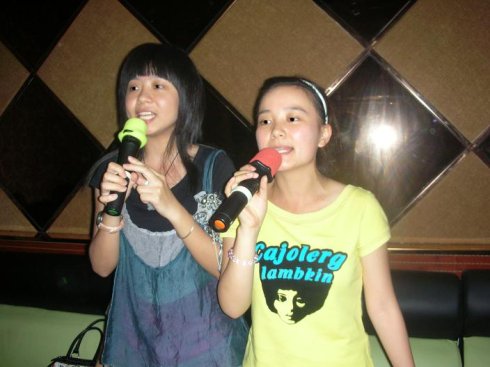Music overcomes Asian emotional restraint
- By Andrew Lam
 0 Comment(s)
0 Comment(s) Print
Print E-mail Shanghai Daily, October 27, 2014
E-mail Shanghai Daily, October 27, 2014
On the recent occasion of my uncle's birthday, my clan gathered from all over the country to celebrate. Instead of gifts, however, he had an unusual birthday wish: Everyone was asked to pick and sing a song on the karaoke.
|
|
|
Music overcomes Asian emotional restraint |
What began as an amusing exercise in merriment turned quickly into something I can only now describe as our first and only family group therapy session.
When it comes to matters close to the heart, my family is notoriously inexpressive. Something within our taciturn culture discourages verbal intimacy. Immigrants and refugees from Vietnam, we rarely communicate to one another what we really feel, and our losses and sorrows we often digest differently and alone.
My uncle, who was going through a painful divorce, had not been able to convey to the family his profound sadness. He was still in love with his wife, but because he was haunted by memories of the war in which he took part and prone to bouts of rage and mania, she had had it with him. He masked this with jokes, and once said while drunk, "Vietnamese men don't cry outward. Our tears flow inward, back into the heart."
But at the birthday bash we all discovered that what we could not talk about, some of us could at least sing out loud. Thus the cousin whose wife took off and left him high and dry sang "Delilah" with a heartbreaking voice. And we managed to tell him that we were sorry for his troubles by singing along with every refrain, "Why, why, why Delilah? My, my, my Delilah!"
Another aunt, who was now in declining health, took the mike to sing the theme song from Doctor Zhivago, dedicating it to the rest of us. "Till then, my sweet, think of me now and then," she sang in a hoarse whisper and out of tune. "God, speed my love, 'til you are mine again." A few of us cried quiet tears as we listened to that thin and frail woman sing gamely on.
After a few more singers, it was Uncle's turn. He chose a well-known Vietnamese song titled, "Come What May, I Will Always Love You." His was a beautiful voice, but halfway through, as he looked at his three grown children, he choked up. Another aunt, his closest sister and confidante, quickly grabbed his mike, put her hand on his shoulder and finished the song. Meanwhile, my uncle's tears were flowing outward, finally, in front of his entire clan.
That afternoon I watched and listened in amazement as my relatives laid bare their hearts before me. It was as if words when sung or turned poetic become acceptable and even welcomed in an Asian immigrant culture, where love and resentment often flow subterraneously.
As I witnessed their sadness, memories of moments with my own immediate family rushed before me. I saw again how timidly my father tried to hold my mother's hand in front of us one evening, and how she, embarrassed, pulled her hand from his grasp and failed to see the subsequent hurt look on his face.
I saw again my long-dead grandmother late one night tiptoeing into the living room to put an envelope between the pages of my older brother's math book. He had been trying to save enough money to buy a used car so he could drive to college. On the envelope in which she put half of her social security income, she wrote succinctly: "Noi cho con" (For my grandson).







Go to Forum >>0 Comment(s)